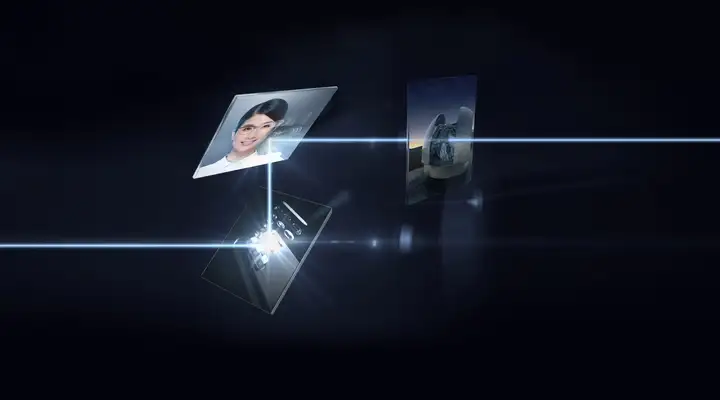
Academy of Optics
How it works
Join the sessions that fit your needs and learn from our leading glass and material experts.
Catch up on our previous sessions and download our summaries
Don’t worry if you missed one of our previous sessions. We understand things come up and schedules change, that’s why we created a summary for all of our past sessions. Click on the session title to download and read for free.
Optical glasses
Starting with the refractive index and its color dependency
Our optical glass sessions will teach you about optical glass properties, and how those properties are achieved and measured. You will also learn how optical glass is enabling discoveries in science and the optical industry. There will be several sessions on optical glass. This first session will focus on the refractive index, its wavelength dependency, and its connection to transmission and measurement.
Production of optical glass for achieving the highest precision
Historically, optical glass manufacturers filled pots with the ingredients of the optical glass composition, melted the raw material, reduced the bubble content by refining processes, mixed the liquid composition, casted the glass, and filled up the pot again. Today, the state-of-the-art method is to melt glass in a continuous process in a tank production. An additional fine annealing process tunes the optical position to its final values and is necessary to achieve the tight requested tolerances on refractive index, dispersion, homogeneity and stress birefringence.
Download
Innovations special
SCHOTT is constantly responding to new customer needs and market demands with new products and capabilities. From mobile phone cameras to autonomous driving - newly developed glasses and improved metrology capabilities are enabling next-generation light-based solutions.
Download
A closer look at optical glass properties
Besides an uniform chemical composition within an optical component also a proper annealing enables an even refractive index distribution and a low stress birefringence. Within this third session about optical glass we will present basics and deep dives into homogeneity and stress birefringence as well as its metrology, limits and how to achieve the limits.
SCHOTT's meticulous production process ensures the highest quality optical glass, from selecting top-grade raw materials to advanced annealing and precise homogeneity control. Discover how SCHOTT's expertise delivers optical glass with minimal refractive index variation, meeting the demands of cutting-edge applications.
ZERODUR® glass-ceramic
ZERODUR® glass-ceramic is a material well-known for its near zero-thermal expansion. For more than 40 years it has been used in space optics for astronomy and earth observation applications. This seminar provides an overview on the space heritage of ZERODUR®, its basic material properties and the processing possibilities.
ZERODUR® glass-ceramic is a material best known to be used as substrate for high-precision mirrors due to its near-zero thermal expansion. For space applications in extreme environments further properties, such as the thermo-mechanical stability have to be considered. Additionally the spatial homogeneity of each property influences the mirror performance. This seminar gives an overview on the crucial material selection parameters for ready-to-use space borne mirror substrates. For attendees already familiar with our material, we will provide a guideline on how to specify ZERODUR® glass-ceramics.
Download
ZERODUR® glass-ceramic mirror substrates need to withstand high mechanical loads applied to during rocket launch of the space optics. In the past years, SCHOTT AG has conducted extensive research on breakage behavior of ZERODUR®. Correlations between the breakage stress threshold and the surface quality have been found applying the 3-parameter Weibull statistics. Following these findings, a lifetime prediction for ZERODUR® components was confirmed.
DownloadAspherical lenses
SCHOTT’s aspherical lenses are engineered to enhance optical performance across diverse applications, from head-up displays in aviation to high-power laser systems. By minimizing spherical aberrations and enabling compact designs, these lenses are crucial for achieving superior image quality and precise laser beam control.
Aspherical lenses are essential in everyday life due to their performance benefits in optical systems. They eliminate spherical aberrations, enable lightweight designs, and are used in a wide range of applications, such as laser processing heads, cinema projectors, and head-up displays in aircraft. SCHOTT offers high-end aspheres with advanced coatings to address challenges like thermal lensing effects caused by high laser power.
Filter glasses
Optical filter glass is known for its selective absorption in certain wavelength ranges. The optical filter glasses appear to be “colored” if their filter effect lies within the visible light spectrum. During this session, you will learn:
- The background of optical filter
- The difference between interference and absorption filters
- The properties of filter glass
Download
Infrared glasses and materials
The demand for chalcogenide material is steadily increasing. Optical designers are seeing the advantages of the material in their optical designs. On the other side, lens manufacturers have to process this “new” material and often have trouble because chalcogenide glass behaves differently than traditional IR materials like Ge or ZnS.
This session will give you an overview on how to work with IRG material when it comes to polishing, pitching, cleaning, storing and general handling.
Download
SCHOT ZnS is sensitive to scratches due to its soft crystalline property. There are a number of applications, particularly military use, where it is very advantageous to apply an anti-reflective coating due to its high refractive index and thus high reflectivity when uncoated. SCHOTT developed a process to render the ZnS multispectral to be more scratch resistant and filed a patent. This anti-reflective coating covers the visible range as well as the long wavelength infrared used for thermal imaging.
DownloadOptical components and coatings
A solid robustness in typical wafer processing conditions is key to a stable and high-yield production. In order to fulfill these ambitious requirements, deep material and technological expertise is needed to supply the right substrates for the right application in a reliable quality.
DownloadCeramic converters
Improve your digital projection systems. New static ceramic converters from SCHOTT - enable high luminance light sources. Design rules for laser pumped phosphor light engines with static ceramic luminescent converters.
Download
Innovations special
For etendue-limited applications such as digital projection, fiber optics, microscopy and vehicle headlights, high-luminance light is the only way to increase brightness or flux. It does not work to make the spot size larger because the extra light will miss the target area (the imaging chip in digital projection). For these applications, the best way to create high-luminance white light is with a laser-pumped phosphor light engine.
These light engines contain a ceramic material that converts high irradiance blue laser light beams into high-luminance yellow or white light via a photoluminescent process. Because this conversion process also creates heat, the material’s thermal properties are critical. Ceramics are an ideal solution because of their superior thermal properties and high efficacy, reliability and brightness.
Why you should attend



